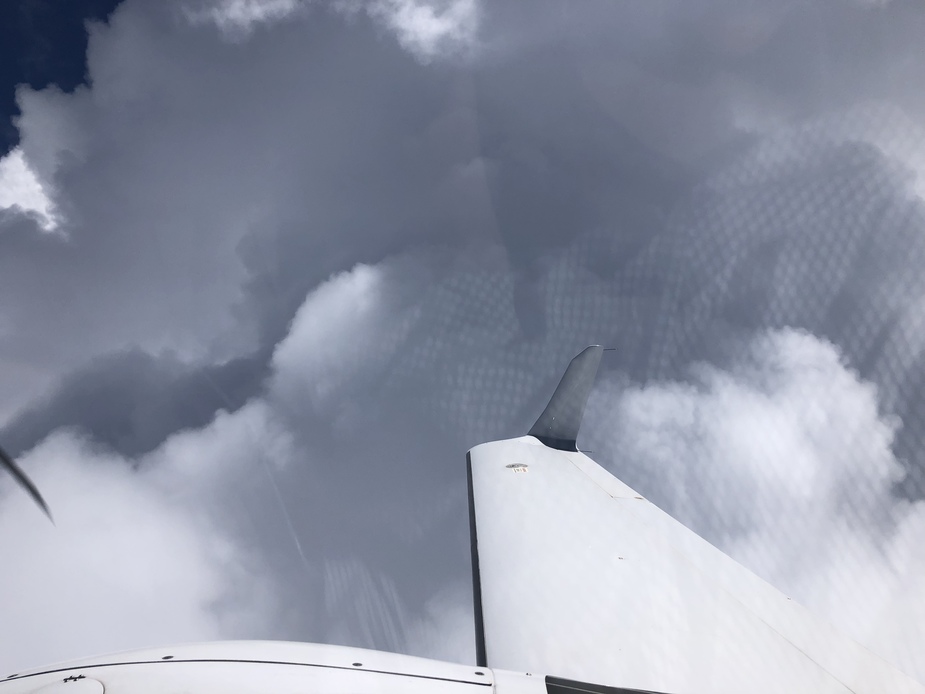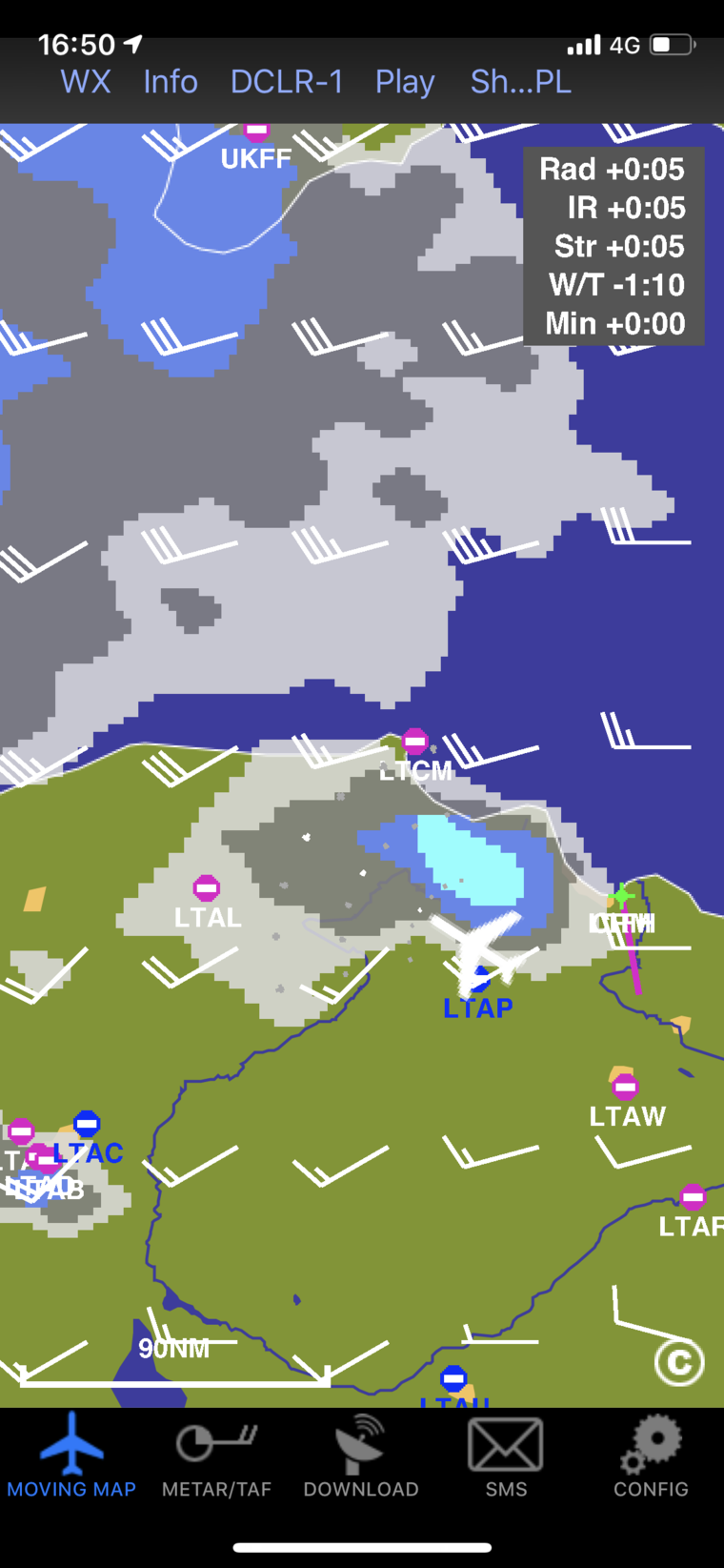JasonC wrote:
“I think the key point is to always use ICAO phraseology, which means keeping it very simple: Nxxxx request 20 degrees left to avoid.”
I am not sure 20 left to avoid actually is ICAO phraseology. It seems more a common shorthand to explain a diversion needed due to convective weather in front.
As a non-native speaker, I am not sure if “Request 20 deg left to avoid.” is a complete English phrase.
As a non-native speaker, I am not sure if “Request 20 deg left to avoid.” is a complete English phrase.
I agree but the problem is that RT phraseology almost always requires incorrect or incomplete English. This is still problematic for me. As a fellow non-native speaker of English I more or less automatically try to speak proper English when doing RT in English, e.g. use verbs and inflect them, when standard phraseology does rarely if ever call for that.
The example phrase is nowhere near a correct sentence. Request 20 degrees of what? To avoid what? I’d probably say something like
Request turning left 20 degrees to avoid a CB
Obviously this takes more airtime, but you may have s better chance to be understood by an ATCO who doesn’t understand the abbreviated form. Disclaimer: As someone who has no experience with the kind of flying discussed here I also admit to having no clue what the “official” correct phrase might be.
denopa wrote:
I don’t think we can expect ATC to help us stay out of ANY cloud. If I don’t have onboard weather, and the forecast has embedded CBs, I either go VFR (if the cloud base is high enough) or I cancel the flight. I don’t file IFR and expect to be able to visually avoid all the way
This flight was completely feasible. If not, I wouldn’t have departed on it. We have Golze weather and it was clear that there was absolutely nothing to the north of our route for a hundred miles. However, there was precipitation ahead of us in the cloud which we didn’t want to enter. Because of the latency of the satellite weather and the forecast possibility of embedded CB I would not fly into IMC in this case. You don’t know where the weather causing the radar echo has moved and how it has developed in the last 20 minutes. If you feel you have to stay on the ground in this case or fly into that cloud, feel free to do so, I won’t.
Anyway, I guess what the controller suspected was that we cheated to get a better routing, what wasn’t the case.
What I found completely idiotic was that he said that it would make life difficult for him if we had to avoid every CB. How stupid is that? Life would have been much more difficult for us inside a CB than it can ever be for him in his center.
Caba wrote:
Call him after landing. Posting here won’t change anything.
You are right, of course, that would have been the best thing! Actually I wanted to do that but couldn’t find the phone number of the München Wachleiter. So I wrote the post here to vent my anger at this guy.
Then again I think most probably he just had a bad day. Or, less likely, he just is an idiot (the percentage of that type amongst controllers is probably about the same as amongst pilots or any other group for that matter). So a day later I think I’ll just leave it like it is.
MedEwok wrote:
Obviously this takes more airtime, but you may have s better chance to be understood by an ATCO who doesn’t understand the abbreviated form. Disclaimer: As someone who has no experience with the kind of flying discussed here I also admit to having no clue what the “official” correct phrase might be.
I don’t think there is an ICAO phraseology for this, but everyone is saying “to avoid”.
I think everyone would do well to remember that ATC has two jobs to do, and in that order: keeping aircraft at a safe distance from each other, and to provide a safe and expeditious route so people can fly where they want.
ATC decides what is required for separation, and the crew decides what is safe and expeditious.
So as a pilot, I should normally avoid second guessing the controller – I don’t know hat else is going on beyond what I can hear on frequency.
And controllers should avoid second guessing crew. They don’t know what is going on in the cockpit.
When requesting heading avoidance I always try my best in estimating for how long, based on what I see and what I get on ADL. The estimates are always “at least 30 miles” or more – this gives you some room (10 minutes or so) to re-evaluate the situation and ATCO has some additional info on your intentions. I don’t remember I’ve ever been declined when asking weather avoidance (climb, descent or heading).
Yesterday I was flying in Turkey on usual spring day close to Black Sea – which means a lot of build-ups with their tops rising during the day, starting at FL120 at 10 a.m. though FL200 at 1 p.m. and exceeding FL300 later. Is it possible to make visual avoidance? Yes. Is it smart to enter embedded stuff? No.
Take a look on attached pictures (no radar coverage of Turkey on ADL, only IR), taken at FL180. You can guess the size of the cell – it was visible from FL180 but flying lower it was embedded.


bookworm wrote:
While on the one hand, it’s appropriate to expect a certain amount of flexibility from ATC, as one gets with convective weather, I would suggest that you not expect ATC to rearrange the entire traffic flow of W Europe to give you the routing you require to avoid icing at your planned levels.
I agree with that and didn’t want to be brisk and say it so directly (austrians are too diplomatic hehe).
May I just say that though I do not fly IFR, on the occasions I have had weather issues VFR, almost without exception, ATC have been VERY helpful. Generally allowing access to airspace without restriction, often when having previously been given specific routings or even asking to remain clear, those instructions have gone straight out of the window pretty much immediately, replaced with variations of “Do what you want now, tell me if you need x, y or z”…
Regards, SD..
ATC can allow almost anything in their area of responsibility. But when you are heading towards another sector they must try and coordinate something with the guy/girl working that sector.
One is only boss in their own house…
“One is only boss in their own house…”
Actually that is what I got as reply when want to avoid rain while IFR in Bristol CAS going to Cardiff: find your way OCAS then ask by yourself again for entry to others zone but it was put in a nice way than ARC reply to the OP
From what I inderstand if you are happy to go for lower levels (mostly vacant for ifr or vfr) then you can fly any heading you like…